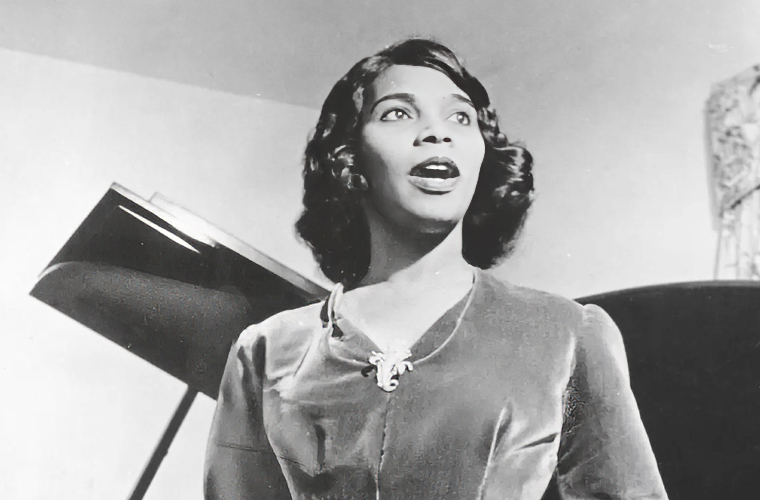Marian Anderson was an American contralto singer, widely regarded as one of the most important opera singers of the 20th century. Born on February 27, 1897, in Philadelphia, Pennsylvania, she overcame numerous obstacles to achieve international fame and recognition for her exceptional vocal talent.
Anderson’s early life was marked by hardship and discrimination. Growing up in a racially segregated society, she faced limited opportunities for formal music education and performance. However, her remarkable voice and determination propelled her to pursue a music career, despite the challenges she faced as an African American woman. In 1925, Anderson won a competition that provided her with the opportunity to study music in Europe. She spent several years honing her craft in countries such as England, Germany, and France, where she received vocal training and performed in various concert halls. This experience helped shape her into a world-class artist with a deep understanding of the classical music tradition.
Upon returning to the United States, Anderson encountered racial prejudice that hindered her professional advancement. Despite this, she continued to perform at concerts and recitals, captivating audiences with her powerful, emotive voice. Her breakthrough came in 1939 when she performed at the Lincoln Memorial in Washington, D.C., after being denied the opportunity to sing at a segregated concert venue. The outdoor concert drew a crowd of over 75,000 people and garnered widespread acclaim, solidifying Anderson’s status as a symbol of resilience and artistic excellence.
Throughout her career, Anderson broke down barriers for African American performers in the classical music world. She made history as the first African American to perform at the Metropolitan Opera in New York City in 1955, and her recordings and performances continue to inspire aspiring musicians and opera singers. In addition to her musical achievements, Anderson was a prominent figure in the civil rights movement. She used her platform to advocate for racial equality and social justice, becoming a role model for future generations of activists and artists.
Marian Anderson’s legacy endures as a testament to the power of perseverance and talent in the face of adversity. Her contributions to the world of classical music and her impact on civil rights continue to resonate, making her an enduring icon of strength and artistry.

